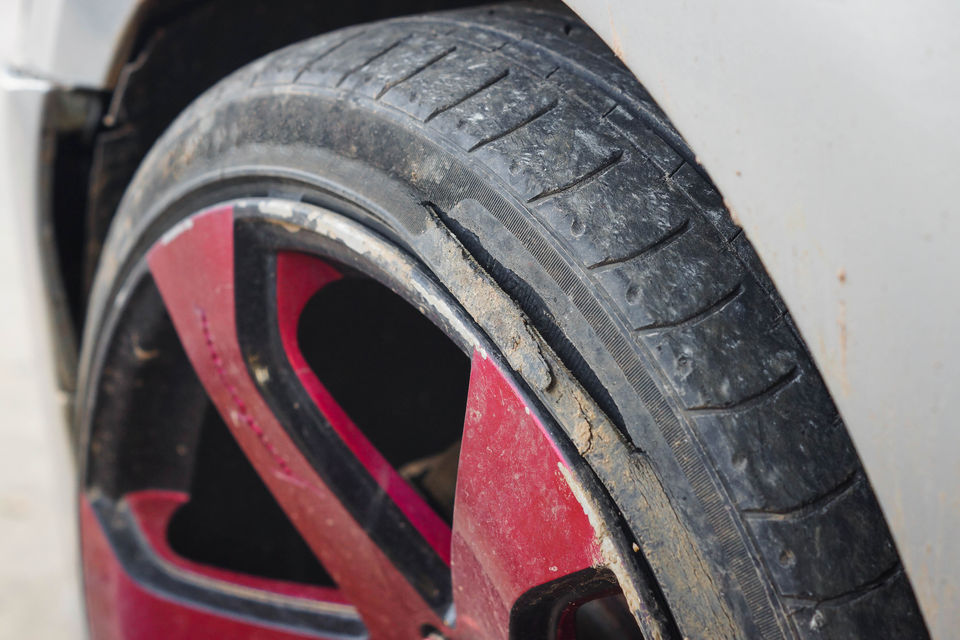
Tyre Sidewall Damage - What Causes It? How To Prevent It?
Have you ever glanced at your car’s tyres and noticed strange patterns etched into the sidewalls? Wondering what leads to this type of damage and how you can avoid it?
In this article, we will tackle everything about tyre sidewall damage, including its types, root causes, and effective prevention strategies.
Types Of Tyres Sidewall Damage
Cracks
One of the most common forms of sidewall damage is cracking.
Prolonged exposure to sunlight, extreme temperatures, and the natural ageing of rubber can cause these tiny fissures on the sidewall surfaces. Cracks may also arise due to improper tyre inflation levels and low-quality rubber compounds.
Cuts
Cuts in the sidewall can result from various road hazards, such as debris, potholes, or sharp objects. These cuts not only compromise the structural integrity of the tyre but can also lead to a sudden blowout while driving.
To mitigate this type of damage, it’s advisable to avoid roads with known hazards and maintain a safe distance from construction sites.
Bulges
Bulges are abnormal protrusions on the sidewall and often indicate internal damage. This could stem from hitting curbs with force, driving through potholes, or even overloading the vehicle.
Bulging sidewalls weaken the tyre’s overall strength, making it prone to a blowout. Hence, practising cautious driving and avoiding sudden impacts can go a long way towards preventing tyre failure.
Causes Of Tyre Sidewall Damage
Road Hazards
Sharp objects, debris, and potholes can cause cuts, punctures, and bulges in the sidewall.
Improper Inflation
Underinflated or overinflated tyres can put extra stress on the sidewalls, leading to cracks and bulges.
Extreme Temperatures
Drastic temperature changes can cause the rubber in the sidewalls to expand and contract, potentially causing cracks.
Aging
As tyres age, the rubber compounds deteriorate, making them more susceptible to cracks and damage.
How To Prevent Tyre Sidewall Damage
Regular Inspections
Frequently inspect your tyres for any visible cracks, cuts, or bulges. Replace the damaged tyres promptly.
Proper Inflation
Keep your tyres inflated to the recommended pressure levels. This helps distribute weight evenly and prevents unnecessary stress on the sidewalls.
Safe Driving
Avoid road hazards, potholes, and debris whenever possible. Drive cautiously to minimise the chances of cuts and bulges.
Rotation and Balancing
Regularly rotate and balance your tyres to ensure even wear and tear, reducing the likelihood of damage.
Quality Tyres
Invest in high-quality tyres with durable sidewalls that are designed to withstand various road conditions.
Conclusion
A key aspect of taking care of your tyres is noticing any damage on the sides.
Knowing the kinds, reasons, and how to stop it can make your tyres last longer and your trips safer.
By making these habits part of your routine, you can keep your vehicle’s tyres in great shape, giving you comfortable and safe driving for years to come.

Louis
I'm Louis, an engineer passionate about helping Australians choose better tyres for their vehicles!
